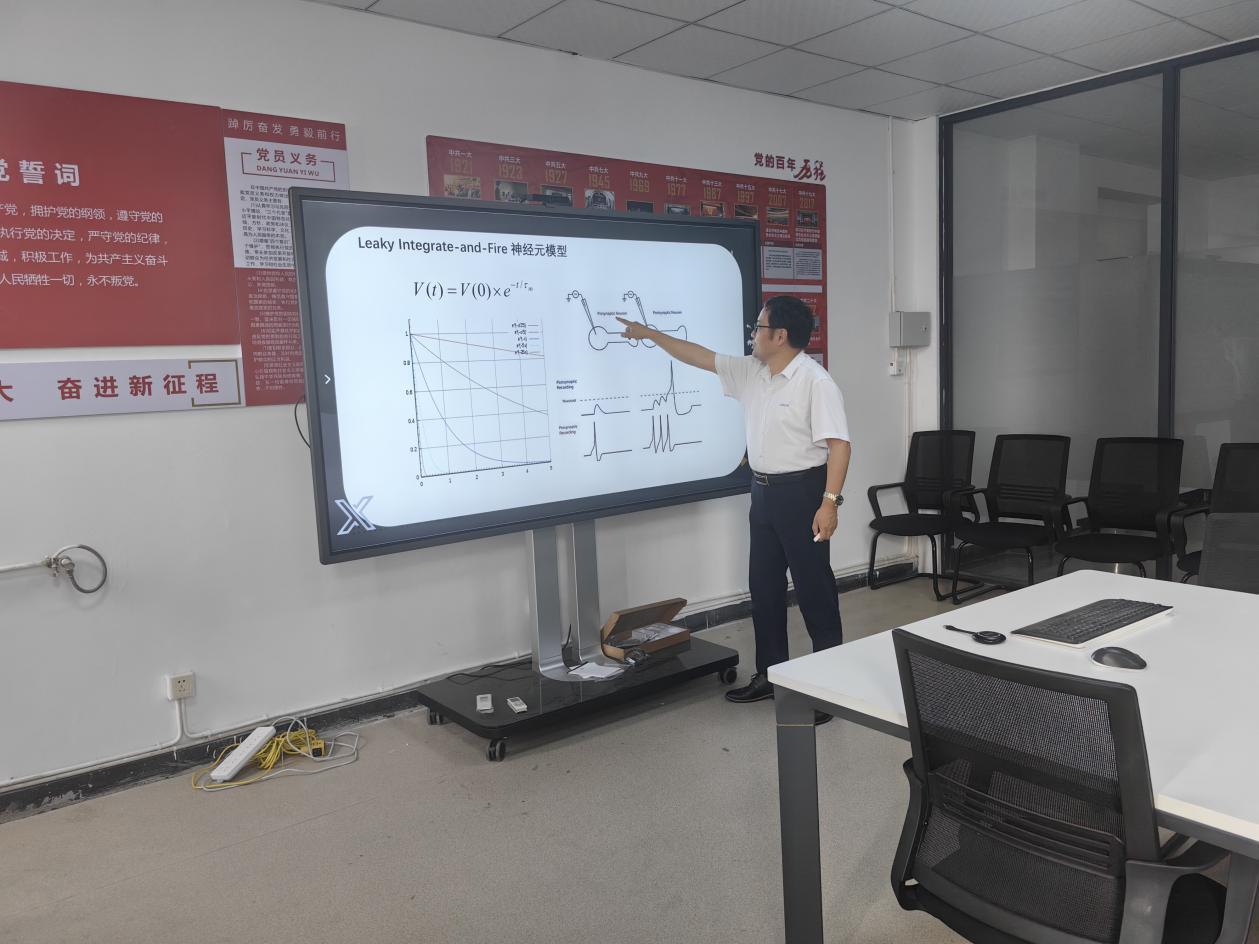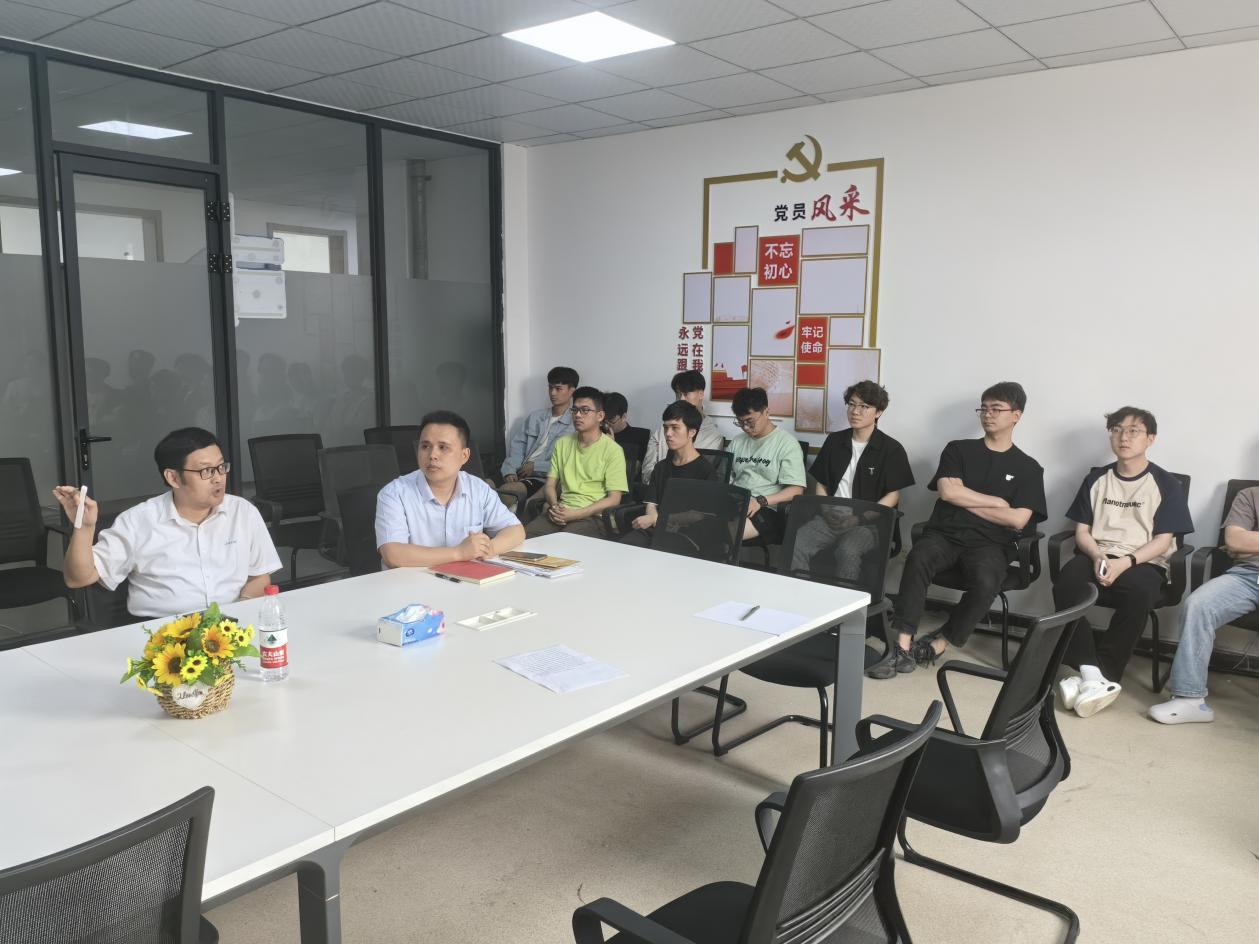Dr. Yang Zhijun, the head of the Central Research Institute of Jack Technology Co., Ltd., was invited to the School of Electronics and Information Engineering to deliver a lecture on “The Potential Development Direction of Artificial Intelligence and Neural Networks: Third-Generation Neural Networks and Brain-Like Computing” to the faculty and students on the afternoon of June 13th. This lecture attracted more than 20 graduate students and was hosted by Lou Liangliang, Vice Dean of the School of Electronics and Information Engineering.

In the lecture, Dr. Yang analyzed the challenges faced by the current pan-artificial intelligence based on the second generation of artificial intelligence technology, especially its limitations in imitating the advanced cognitive functions of the human brain, as well as the high cost of large-scale training and the deviation from the ability of the human brain to draw inferences about other cases from one instance. He pointed out that, in order to break through these bottlenecks, new technological paths need to be sought. Subsequently, Dr. Yang introduced in detail the core of the third generation of AI technology—brain-like computing. He vividly explained the principle of brain-like computing based on pulse neuron networks and STDP learning rules, combined with BBC video and audio materials, and discussed how this technology can be applied to practical scenarios. In view of the neurophysiological structure of the brain, he further explained the main mathematical models and learning rules of brain-like computing, as well as the effects of these theories and models in practical applications.

The lecture not only brought cutting-edge AI technology knowledge to the participating teachers and students, but also provided inspiration for the future research direction of the school.
Experts profile:
Dr. Yang Zhijun, the head of the Central Research Institute of Jack Technology Co., Ltd., has long been engaged in research on models, algorithms, and hardware implementation of artificial intelligence and neural networks at the School of Engineering of the University of Edinburgh, the University of Watt, and the University of Stirling in the United Kingdom. He is a Fellow of the British Higher Education Academy and a regular reviewer for several internationally renowned AI professional journals and top conferences, as well as the editor-in-chief and editorial board member of special issues. He has presided over or participated in a number of general projects of EPSRC, BBSRC and the National Natural Science Foundation of China, and published more than 60 papers in international AI/robotics related journals and major international conferences.